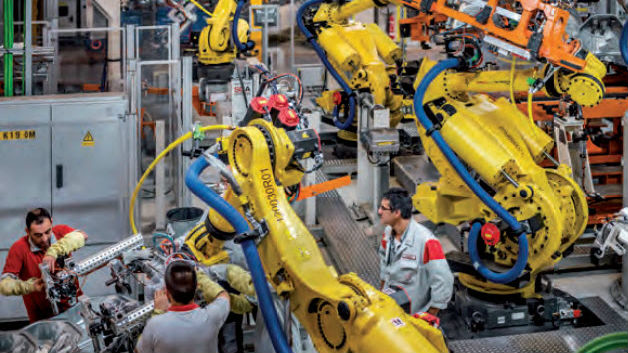Trade, Automation and Job Losses

Some experts argue that the next wave of technological advances will replace many existing jobs but will also create new ones. Other experts disagree, arguing that the new wave of technologies is different (in terms of speed, scale and force) and will replace human jobs at a massive scale, leading to a “jobless future.”
The 2017 edition of the World Trade Organization’s flagship publication, the World Trade Report, examines these issues highlighting how technology and trade affect labor markets.
Technological progress and openness to trade – the two most important drivers of economic advances and change today – are inextricably linked. The rise of a more integrated global economy has accelerated the spread of innovation, information and know-how and has spurred cross-border collaboration and competition, all of which have helped to fuel technological advances. At the same time, these technological advances – from containerization to improvements in air-travel, to the invention of the internet – have helped to bring about today’s increasingly integrated global economy. The result tends to be a virtuous circle in which advances in technology lead to more openness to trade, and economic openness spurs technological advance, all helping to underpin deepening growth and greater integration of developing countries into the global economy.
In the nineteenth century, new technologies – steamships, railways, the telegraph – allowed early industrializers in Europe and North America to race ahead of the rest of the world. In the twentieth century, newer technologies – automobiles, airplanes, telecommunications – enabled the next wave of industrializers – Korea, Singapore and other “Asian Tigers” – to catch up with the developed countries, even as they redoubled their per capita income lead on the less developed world. Now, even more advanced technologies – computers, smartphones, the internet – are fueling the latest and biggest wave of economic catch-up, as dozens of developing countries achieve sustained annual growth rates of eight percent or more.
Advanced economies continue “developing,” evolving from agricultural, to industrial, and now to services- and knowledge-based economies. Every month an average of 1.7 million jobs disappear – and an equal number is created – in a U.S. labor market of 160 million. In 1970, over a quarter of American employees worked in the manufacturing industry. Today, it employs less than 10 percent, yet U.S. manufacturing output has nearly tripled.
The services sector encompasses a broad range of activities ranging from professional services, healthcare and banking to retail and wholesale trade, tourism and transport. According to ILO estimates, the services sector has been the world’s largest provider of jobs since the early 2000s. The global number of services jobs increased steadily by an average of three percent annually between 2000 and 2016.
The phenomenon of digitalization has led to the emergence of new business and employment models, often referred to as the “platform economy.” In particular, the establishment and development of new digital transportation, accommodation and on-demand and freelance labor platforms have enabled the creation of new types of jobs as well as temporary and flexible contracting arrangements.
Several studies and reports have attempted to estimate the share of jobs that are at high risk of automation. Different methodologies and underlying assumptions lead to substantially different estimates which tend to be larger in developing countries than in developed countries. One recent study identified retail salespeople, administrative assistants, food counter personnel, cashiers and transport truck drivers as working at occupations that are at a greater risk of automation.
While the debate remains unsettled and controversial, the upcoming technological progress is likely to continue being disruptive by having an impact on skills development, by making some skills obsolete but enhancing others and creating a need for new skills.
The report is available here.
The opinions expressed herein are the author's and not necessarily those of The Maritime Executive.
